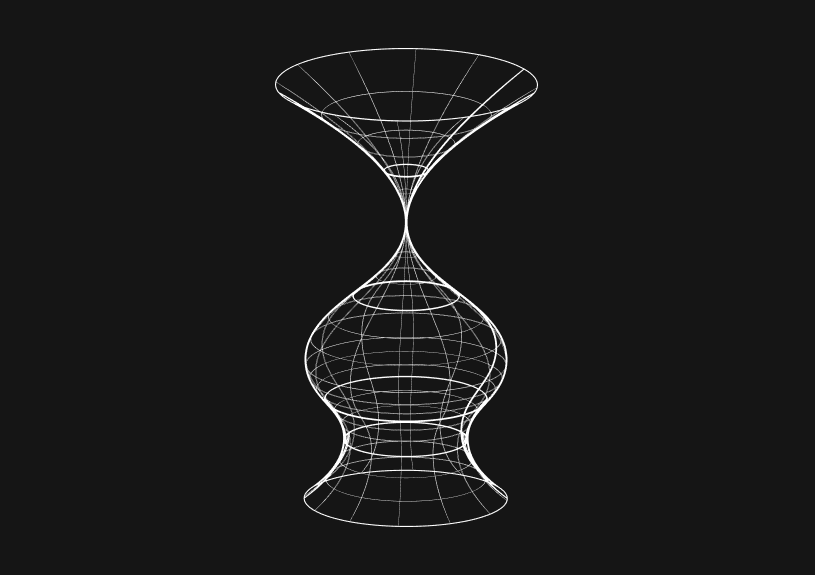
What is Functional Programming in TypeScript?
October 27, 2023
Functional programming (FP) is a programming paradigm that treats computation as the evaluation of mathematical functions and avoids changing state and mutable data. TypeScript, being a superset of JavaScript, is capable of functional programming. This guide will walk you through the core concepts of FP in TypeScript.
Pure Functions
A function is pure if:
- It returns the same output for the same input.
- It has no side effects.
Example:
function add(a: number, b: number): number { return a + b; }
Immutability
In FP, once data is created, it cannot be changed. Instead of modifying data, we produce a new copy of the data with modifications.
Example using TypeScript with arrays:
const arr1 = [1, 2, 3]; const arr2 = [...arr1, 4]; // [1, 2, 3, 4]
First-Class and Higher-Order Functions
In TypeScript, functions are first-class citizens, meaning they can be passed as arguments, returned as values, and assigned to variables.
A higher-order function either:
- Takes one or more functions as arguments, or
- Returns a function as its result.
Examples:
// Map is a higher-order function const arr = [1, 2, 3]; const doubled = arr.map(x => x * 2); // [2, 4, 6]
Currying
Currying is a technique in which a function that takes multiple arguments is transformed into a sequence of functions that each take a single argument.
Example:
function multiply(a: number): (b: number) => number { return (b: number) => a * b; } const double = multiply(2); console.log(double(4)); // Outputs: 8
Functional Composition
Function composition is the process of combining two or more functions to produce a new function. It's a way to create complex functions by chaining together simpler ones.
Example:
function square(n: number): number { return n * n; } function increment(n: number): number { return n + 1; } // Compose function compose<A, B, C>(f: (b: B) => C, g: (a: A) => B): (a: A) => C { return a => f(g(a)); } const squareThenIncrement = compose(increment, square); console.log(squareThenIncrement(4)); // Outputs: 17
Functors and Monads
While these concepts originate from category theory, they're crucial in the realm of functional programming.
- Functor: An object that has a
mapmethod. - Monad: An object with
mapandflatMap(orbind) methods.
In TypeScript, arrays can be considered functors:
const arr = [1, 2, 3]; const result = arr.map(x => x + 1); // Functor in action: [2, 3, 4]
Promises in TypeScript can be seen as monads:
const promise = Promise.resolve(3); const newPromise = promise.then(x => x + 1).then(x => x * 2); // Monad in action
This guide introduces the basic principles of functional programming in TypeScript. By incorporating these principles, you can write cleaner, more maintainable, and more predictable code. Remember, functional programming is not just about following a set of rules, but also about adopting a mindset to solve problems in a different way.
You could ship faster.
Imagine the time you'd save if you never had to build another internal tool, write a SQL report, or manage another admin panel again. Basedash is built by internal tool builders, for internal tool builders. Our mission is to change the way developers work, so you can focus on building your product.

TOC
October 27, 2023
Functional programming (FP) is a programming paradigm that treats computation as the evaluation of mathematical functions and avoids changing state and mutable data. TypeScript, being a superset of JavaScript, is capable of functional programming. This guide will walk you through the core concepts of FP in TypeScript.
Pure Functions
A function is pure if:
- It returns the same output for the same input.
- It has no side effects.
Example:
function add(a: number, b: number): number { return a + b; }
Immutability
In FP, once data is created, it cannot be changed. Instead of modifying data, we produce a new copy of the data with modifications.
Example using TypeScript with arrays:
const arr1 = [1, 2, 3]; const arr2 = [...arr1, 4]; // [1, 2, 3, 4]
First-Class and Higher-Order Functions
In TypeScript, functions are first-class citizens, meaning they can be passed as arguments, returned as values, and assigned to variables.
A higher-order function either:
- Takes one or more functions as arguments, or
- Returns a function as its result.
Examples:
// Map is a higher-order function const arr = [1, 2, 3]; const doubled = arr.map(x => x * 2); // [2, 4, 6]
Currying
Currying is a technique in which a function that takes multiple arguments is transformed into a sequence of functions that each take a single argument.
Example:
function multiply(a: number): (b: number) => number { return (b: number) => a * b; } const double = multiply(2); console.log(double(4)); // Outputs: 8
Functional Composition
Function composition is the process of combining two or more functions to produce a new function. It's a way to create complex functions by chaining together simpler ones.
Example:
function square(n: number): number { return n * n; } function increment(n: number): number { return n + 1; } // Compose function compose<A, B, C>(f: (b: B) => C, g: (a: A) => B): (a: A) => C { return a => f(g(a)); } const squareThenIncrement = compose(increment, square); console.log(squareThenIncrement(4)); // Outputs: 17
Functors and Monads
While these concepts originate from category theory, they're crucial in the realm of functional programming.
- Functor: An object that has a
mapmethod. - Monad: An object with
mapandflatMap(orbind) methods.
In TypeScript, arrays can be considered functors:
const arr = [1, 2, 3]; const result = arr.map(x => x + 1); // Functor in action: [2, 3, 4]
Promises in TypeScript can be seen as monads:
const promise = Promise.resolve(3); const newPromise = promise.then(x => x + 1).then(x => x * 2); // Monad in action
This guide introduces the basic principles of functional programming in TypeScript. By incorporating these principles, you can write cleaner, more maintainable, and more predictable code. Remember, functional programming is not just about following a set of rules, but also about adopting a mindset to solve problems in a different way.
You could ship faster.
Imagine the time you'd save if you never had to build another internal tool, write a SQL report, or manage another admin panel again. Basedash is built by internal tool builders, for internal tool builders. Our mission is to change the way developers work, so you can focus on building your product.

October 27, 2023
Functional programming (FP) is a programming paradigm that treats computation as the evaluation of mathematical functions and avoids changing state and mutable data. TypeScript, being a superset of JavaScript, is capable of functional programming. This guide will walk you through the core concepts of FP in TypeScript.
Pure Functions
A function is pure if:
- It returns the same output for the same input.
- It has no side effects.
Example:
function add(a: number, b: number): number { return a + b; }
Immutability
In FP, once data is created, it cannot be changed. Instead of modifying data, we produce a new copy of the data with modifications.
Example using TypeScript with arrays:
const arr1 = [1, 2, 3]; const arr2 = [...arr1, 4]; // [1, 2, 3, 4]
First-Class and Higher-Order Functions
In TypeScript, functions are first-class citizens, meaning they can be passed as arguments, returned as values, and assigned to variables.
A higher-order function either:
- Takes one or more functions as arguments, or
- Returns a function as its result.
Examples:
// Map is a higher-order function const arr = [1, 2, 3]; const doubled = arr.map(x => x * 2); // [2, 4, 6]
Currying
Currying is a technique in which a function that takes multiple arguments is transformed into a sequence of functions that each take a single argument.
Example:
function multiply(a: number): (b: number) => number { return (b: number) => a * b; } const double = multiply(2); console.log(double(4)); // Outputs: 8
Functional Composition
Function composition is the process of combining two or more functions to produce a new function. It's a way to create complex functions by chaining together simpler ones.
Example:
function square(n: number): number { return n * n; } function increment(n: number): number { return n + 1; } // Compose function compose<A, B, C>(f: (b: B) => C, g: (a: A) => B): (a: A) => C { return a => f(g(a)); } const squareThenIncrement = compose(increment, square); console.log(squareThenIncrement(4)); // Outputs: 17
Functors and Monads
While these concepts originate from category theory, they're crucial in the realm of functional programming.
- Functor: An object that has a
mapmethod. - Monad: An object with
mapandflatMap(orbind) methods.
In TypeScript, arrays can be considered functors:
const arr = [1, 2, 3]; const result = arr.map(x => x + 1); // Functor in action: [2, 3, 4]
Promises in TypeScript can be seen as monads:
const promise = Promise.resolve(3); const newPromise = promise.then(x => x + 1).then(x => x * 2); // Monad in action
This guide introduces the basic principles of functional programming in TypeScript. By incorporating these principles, you can write cleaner, more maintainable, and more predictable code. Remember, functional programming is not just about following a set of rules, but also about adopting a mindset to solve problems in a different way.
You could ship faster.
Imagine the time you'd save if you never had to build another internal tool, write a SQL report, or manage another admin panel again. Basedash is built by internal tool builders, for internal tool builders. Our mission is to change the way developers work, so you can focus on building your product.

What is Basedash?
What is Basedash?
What is Basedash?
Ship faster, worry less with Basedash
Ship faster, worry less with Basedash
You're busy enough with product work to be weighed down building, maintaining, scoping and developing internal apps and admin panels. Forget all of that, and give your team the admin panel that you don't have to build. Launch in less time than it takes to run a standup.
You're busy enough with product work to be weighed down building, maintaining, scoping and developing internal apps and admin panels. Forget all of that, and give your team the admin panel that you don't have to build. Launch in less time than it takes to run a standup.
You're busy enough with product work to be weighed down building, maintaining, scoping and developing internal apps and admin panels. Forget all of that, and give your team the admin panel that you don't have to build. Launch in less time than it takes to run a standup.




Dashboards and charts
Edit data, create records, oversee how your product is running without the need to build or manage custom software.
USER CRM
ADMIN PANEL
SQL COMPOSER WITH AI

Related posts
Related posts
Related posts



How to turn webpages into editable canvases with a JavaScript bookmarklet
Kris Lachance



How to fix the "not all code paths return a value" issue in TypeScript
Kris Lachance



Working with WebSockets in Node.js using TypeScript
Kris Lachance



Type Annotations Can Only Be Used in TypeScript Files
Kris Lachance



Guide to TypeScript Recursive Type
Kris Lachance



How to Configure Knex.js with TypeScript
Kris Lachance
